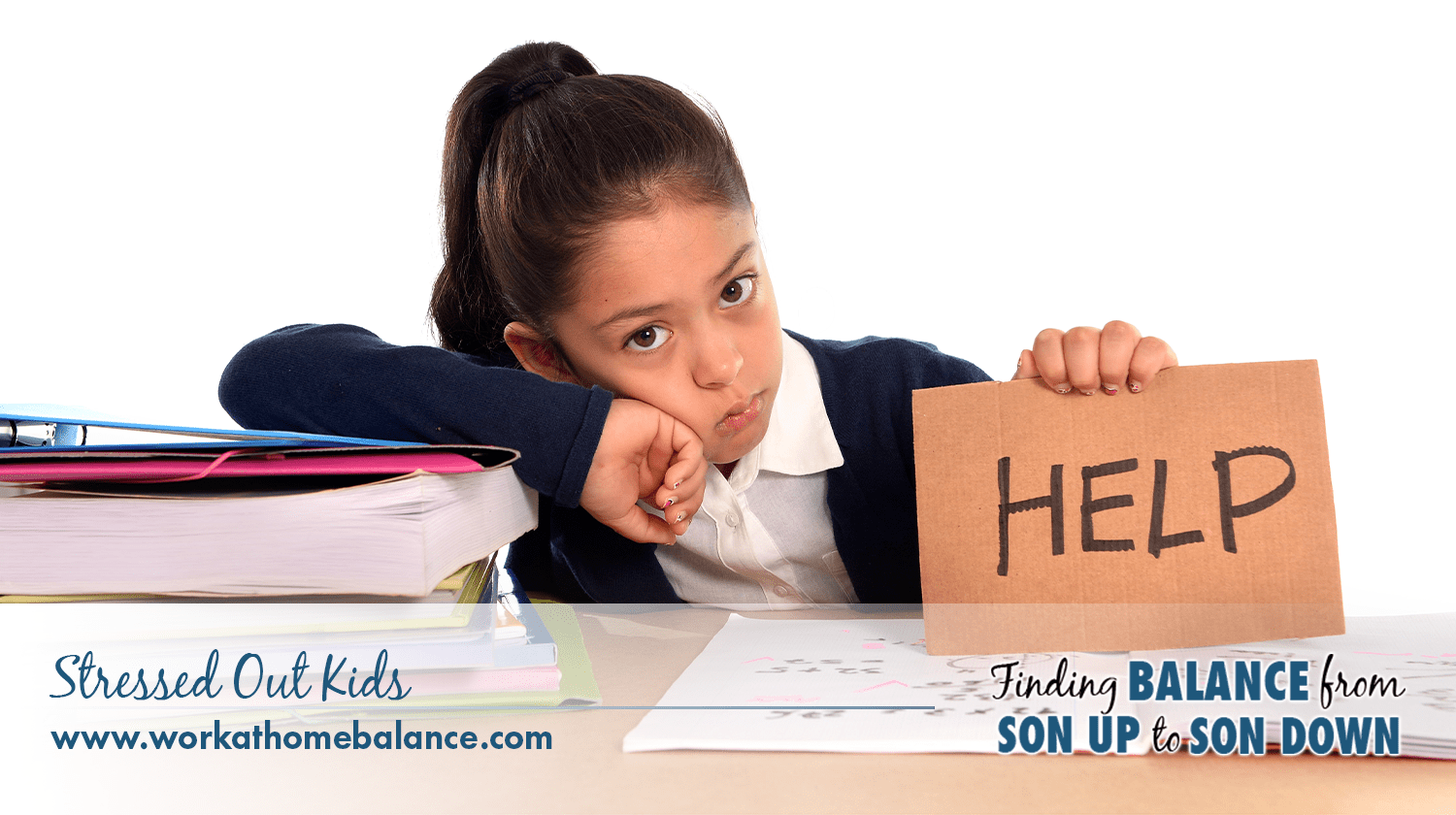
Daniel wasn’t doing well in school, and he was very busy. Every week, in addition to school, he had drum lessons, tennis lessons, chess club, swimming meets, religious instruction, and karate.
Not surprisingly, he was up to all hours of the night finishing his homework. Daniel’s Mom worried because Daniel kept having meltdowns and she didn’t know why.
Daniel wasn’t suffering from low confidence. He was suffering from having too much to do.
Keep in mind that school is your child’s most important activity. If your child is involved in too many outside activities, this constant running from one thing to the next gets in the way of school success. Help them choose two or three things they love doing. Even two is enough.
When kids have too much to do, they often appear to have emotional problems, learning problems, poor study skills, or poor work habits. In fact, they just don’t have the time to do their homework. They’re involved in so many activities and have so many chores that they end up with no time to play, relax and unwind. It’s as if these kids are attempting to squeeze school into their busy schedules.
Kids obviously do better in school and in everyday life if they aren’t stressed out, too tired, over-scheduled, and burdened with hours of homework.
When kids are overwhelmed, parents need to help monitor the amount of work and activities, in and out of school. It’s a parent’s job to protect their kids from having too much to do.
Strategies and Recommendations:
Together with your child, make a schedule of his day. Put in the activities he’s involved in or wants to be involved in. Include the time it takes to get to the activity and get home. Be sure to include dinner.
Now, how much time is left? Is there enough time for homework? Does finishing homework mean he’ll have to stay up too late?
If you see that he has no time for homework or only time for homework when he should be getting ready for bed, talk about what can be changed. Let him decide what to drop and what to keep. Don’t insist that he drop an activity he loves, such as playing on a team, or practicing guitar.
Many children aren’t getting enough exercise. Physical exercise helps not only build strong bodies but also improves brain function. So it’s a good idea to encourage one activity that involves moving such as sports or dance.
The earlier in the school year, you and your child work on their schedule, the better. It’s easier to drop an activity early on than wait until your child is totally involved. Dropping something later can be more complicated and disappointing.
For kindergartners, 1st and 2nd graders, one scheduled activity is plenty. Even though they don’t have much homework, they need lots of time for playing. Playing is a learning activity.
Older elementary school kids can usually manage two activities. For tweens and teens, three is the maximum and for some that’s too many. If teens are taking several AP classes and have lots of homework, two activities may be all they can handle.
When you’re helping your child fill in their schedule, remind them that school will include activities that take more homework than usual: doing a science project, studying for final exams, a senior project, a college-like term paper, studying for PSATs or SATs. When these deadlines come around, kids need to have the time available to do their best job.
Helping your child carefully select a couple of outside activities now gives your child time for homework, class projects, and other things that pop up like birthday parties, family gatherings, going to their school’s football games, and sleep-overs.
You’ll find more strategies on how to help your child in school with Dr. Linda’s FREE “School Success Tips.” Subscribe today at www.drlindasblog.com
With your subscription, you’ll receive the first chapter of “Why Bad Grades Happen to Good Kids.” This award-winning book, written by Dr. Linda Silbert and her husband Al, includes a preface by Al Roker, Co-host of NBC’s Today Show. And you’ll also get our mini-ebook, “Top 25 Homework Tips.”
Linda Silbert, Ph.D.
P.O. Box 68 Mahopac, NY 10541
845-628-7910
www.drlindasblog.com
Article Source: EzineArticles.com/?expert=Dr._Linda_Silbert

Leave a Reply